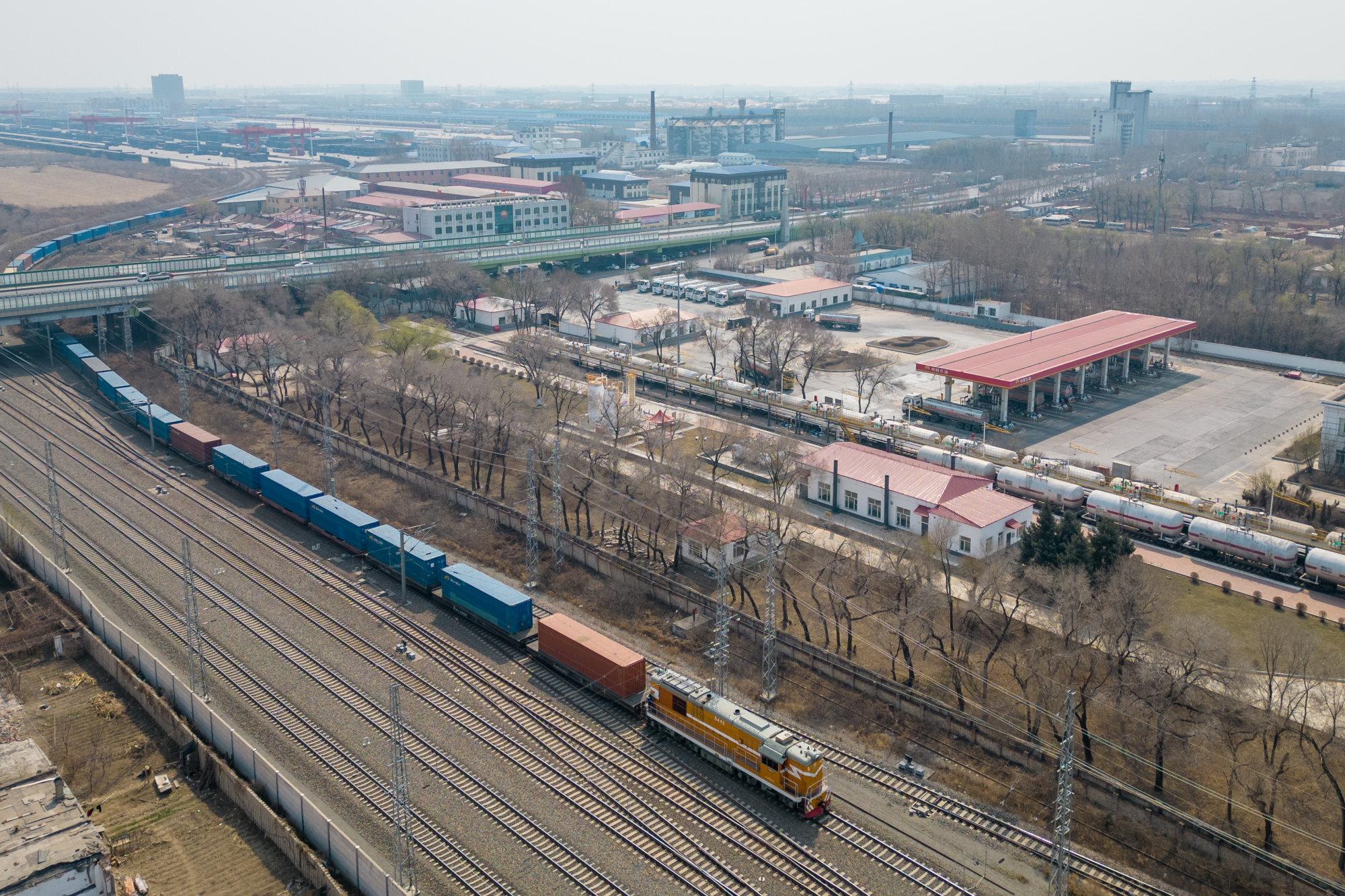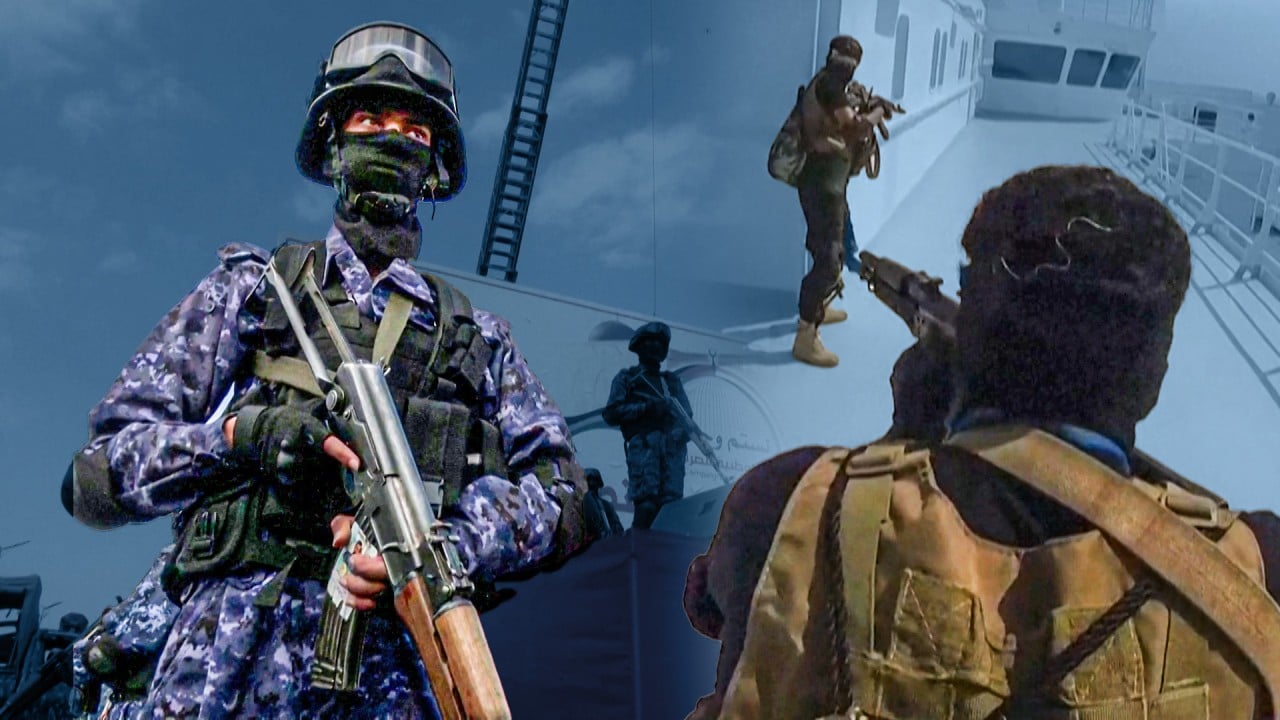Their actions have forced major shipping lines, including Danish shipping giant Maersk, Chinese state-owned shipping company Cosco and energy giant BP, to stop using the Suez Canal and Red Sea route.
China, known as the factory of the world, produces a lot of goods for export before factories close for the annual holiday. But with ships being paused or diverted around the Cape of Good Hope, many are not expected to reach Chinese ports in time.
The Suez Canal provides the shortest shipping route between Europe and Asia. One of the world’s busiest waterways, it accounts for 12 per cent of global trade, including 30 per cent of all container movement, according to Egypt’s State Information Service.
Rico Luman, a senior economist with a focus on transport, logistics and the automotive industry for ING Research, said the current detours and longer trip durations will lead to further port issues in January and February, which in turn will affect supply chains.
“Things can only start to normalise – if a solution to the security threats is found – after Chinese New Year,” Luman said.
Delays caused by the shipping crisis will lead to major problems at ports, according to Marco Forgione, director general at the Institute of Export & International Trade, an association of exporters and importers.
“The ports will suffer from congestion … all that will cascade to create a multiplier effect from the impact of the disruption,” Forgione said.

Forgione said there has been a significant increase in requests for information about the railway. It runs through more than 100 cities in 11 Asian countries and regions and reaches 217 cities across 25 European nations.
“The railway to Europe is a viable alternative and we are seeing increased demand for that route. The railway is more feasible for containerised traffic,” Forgione said.
“The expectation is that the use of rail could even double in the next few weeks as an alternative to sea freight.”
However, Luman did not agree that the Red Sea situation would have that big an impact on the rail connection.
“Shippers that are now threatened to run late for forthcoming important, higher valued deliveries will turn to air freight instead,” Luman said.

“It’s also still a problem for many Western shippers that trains usually run through Russia, so the most popular route now crosses the Caspian Sea and this takes longer than it used to,” he said.
Shanghai EPU Supply Chain Management Co president Tommy Tan told Chinese state-owned newspaper the Global Times: “The number of inquiries [about the China-Europe Railway Express] has doubled since these incidents began. We are actively preparing route configurations and increasing capacity for round-trip services to meet growing customer demand.”
Although sending freight by rail is more expensive than by sea, the trains from China to Europe would take about 12 days compared with the usual sea transit time of 35 to 45 days.
US, allies warn Houthis as Red Sea attacks rattle global commerce
US, allies warn Houthis as Red Sea attacks rattle global commerce
But as exporters look to alternative routes and modes of transport, the move will also see a shift in who wears the extra costs – and who loses revenue.
Jensen said, as a rough benchmark, avoiding the Red Sea would add around US$2 million to a ship’s journey in terms of fuel and other costs. This means for a full round-trip journey between Asia and Europe, each vessel could have an extra US$4 million in costs, he said.
Christian Roeloffs, co-founder and CEO of Container xChange, an online platform for container logistics, said freight rates through the Red Sea had already increased by 20 to 30 per cent. Similarly, average container prices have also risen, he said.
“In terms of average container prices, we notice a week on week increase across ports in Tianjin, Shenzhen, Shanghai, Ningbo and Huangpu,” Roeloffs said. “If we zoom in to individual locations in China, especially in Shanghai, Tianjin and Ningbo, then we notice that average prices of 40ft-high cube containers have been increasing steadily,” he said, adding this was largely attributable to the situation in the Red Sea.


